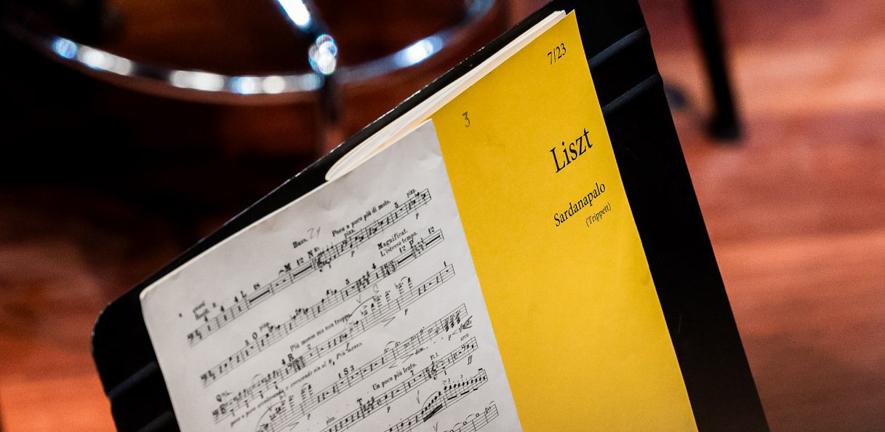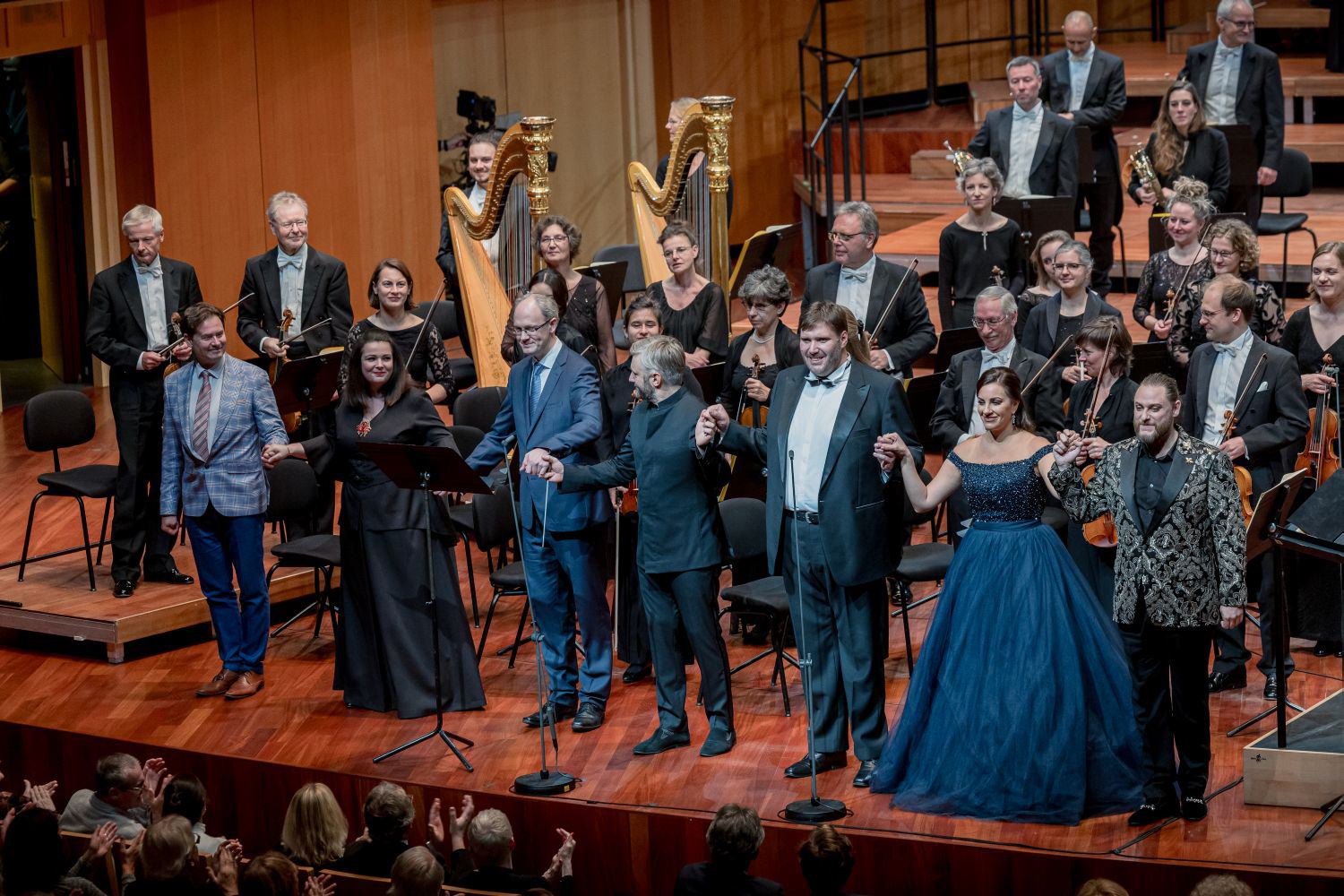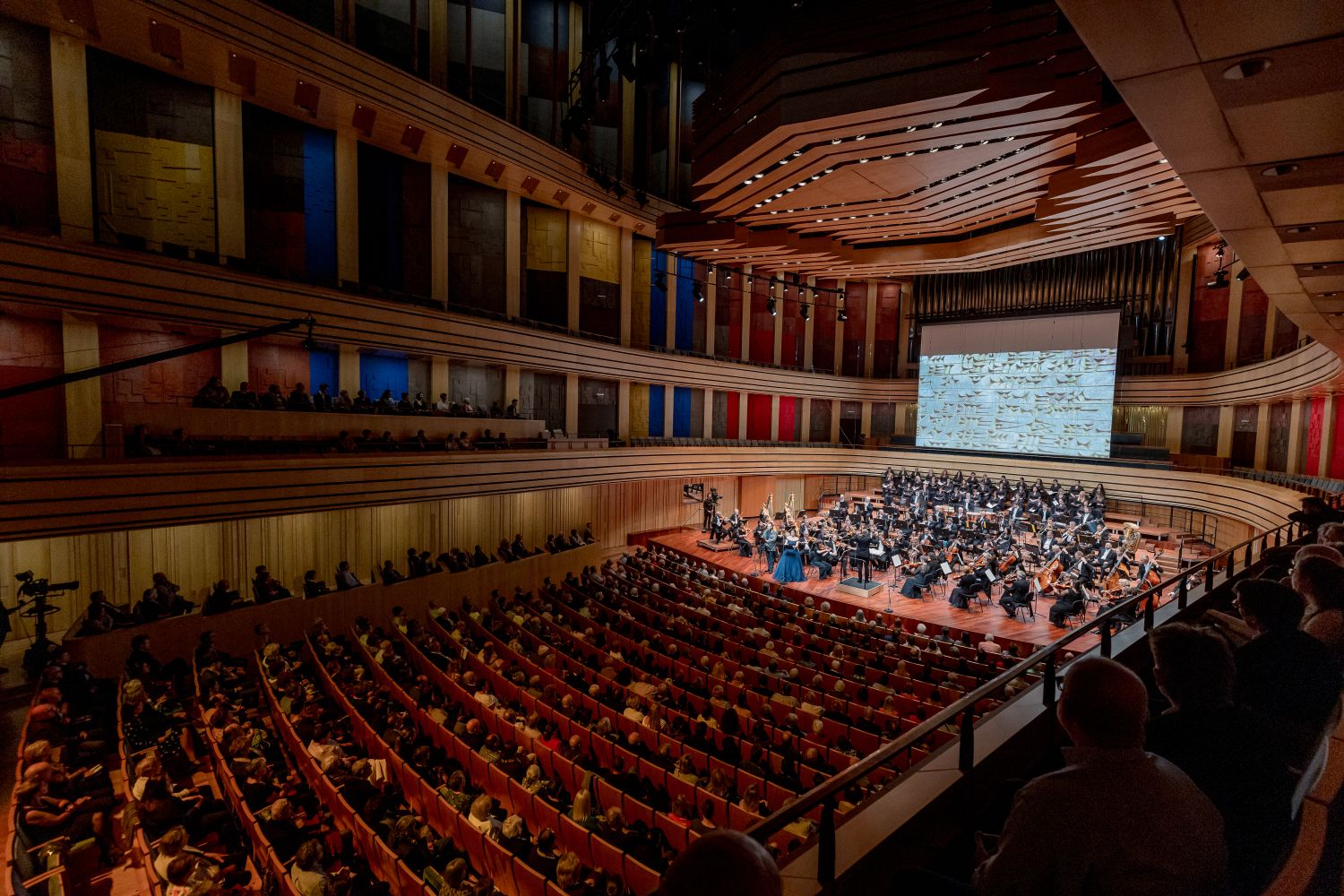
On 22 October 2023, the Hungarian premiere of Liszt’s only mature opera, Sardanapalo (unfinished), took place at the Béla Bartók National Concert Hall at the Palace of the Arts in Budapest. It formed the culmination of the Liszt Festival (LisztFest), and brought the fruits of Professor David Trippett’s research to Hungarian audiences for the first time.
Ukrainian conductor Kirill Karabits directed the Staatskapelle Weimar, with the Hungarian National Choir, and soloists Joyce El-Khoury (sop), Airam Hernández (ten), and Oleksandr Pushniak (bass).
Professor Trippett had first established the legibility of Liszt’s N4 manuscript in 2016, and gained international attention when he produced both the critical edition (Neue Liszt Ausgabe) and an orchestrated performing edition (Schott). This presented historians with a new perspective on Liszt as a composer of Italian opera, and audiences with a new musical work (55min) that reflects the richness of Liszt’s musical interests during the late 1840s. The University recently told the research story.
Following the world premiere in Weimar, Germany in 2018, critics pronounced it ‘white-hot’ (New York Times), ‘a lost opera of glittering scope’ (Guardian), and ‘immensely important’ (Gramophone), while the Times declared that ‘its emergence changes music history’. Concert performances have taken place in Italy, Austria, America, Serbia and now Hungary.
The sold-out concert in Budapest was accompanied by large projections of Assyrian stone reliefs courtesy of the British Museum, which conjured the opera’s context and plot: a story of love and war during the last days of the Assyrian Empire c. 631BC. These artefacts relate primarily to Ashurbanipal (the historical model for Lord Byron’s fictional tragedy Sardanapalus, the source of the libretto); they depict the king himself, feasts and concubines, winged genies and sacred figures, and warfare. Their arrival in London and Paris captured the imagination of European audiences at precisely the time Liszt was working on his opera during the late 1840s.
Hungarian media have carried a range of articles, from narratives to interviews, alongside snippets from the concert in the Festival’s ongoing video reportage:
Professor Trippett gave lectures at the Liszt Academy, and a lecture-recital with Airam Hernández at the Liszt Museum. He said: ‘It is a great pleasure to be able to bring this music to Hungarian audiences in Budapest, where Liszt set up an academy, maintained a flat, and even held office hours for students. The research behind it has been a multi-year project, and it’s a delight to see how its value continues to grow in the hands of international performers.’
Professor Trippett’s research was supported by the University of Cambridge, the Leverhulme Trust, and the European Research Council.
Images © Attila Nagy, Müpa Budapest.
***





